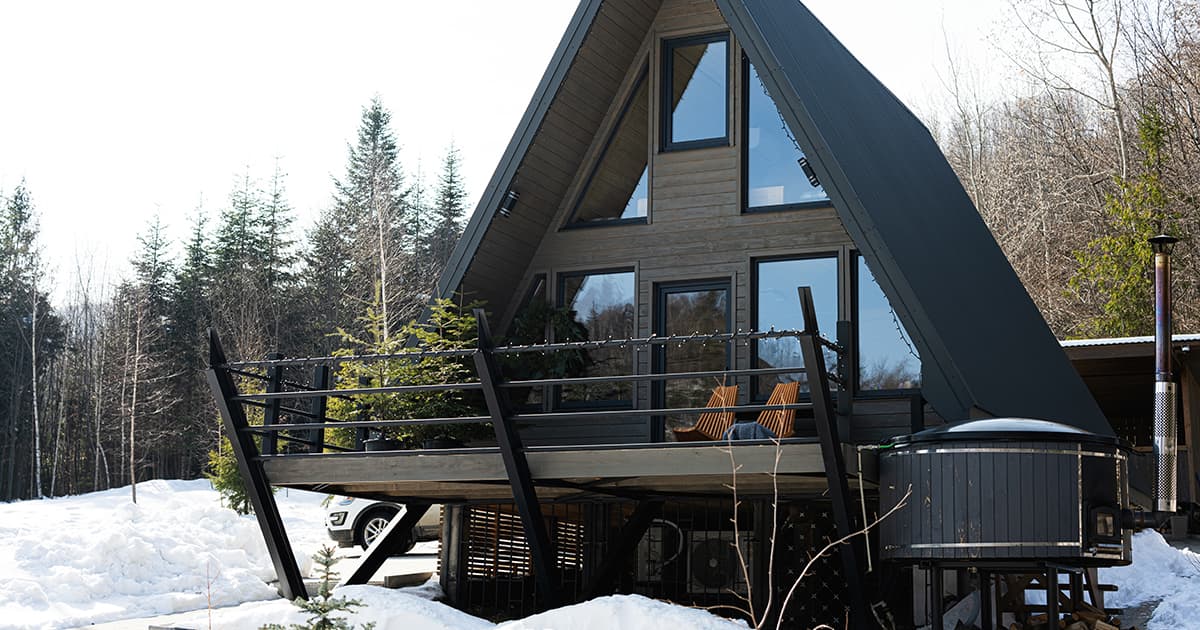How to Close up the Cottage and Does it Need to be Insured?

Closing up your cottage for winter is on your fall to-do list. You’ll need to protect it from the harsh weather and check to see what your cottage insurance covers. Does your existing insurance policy cover winter-related damage?
Here’s a guide:
How to close up a cottage for winter
Clean the interior:
Remove perishable food items to prevent pests. Clean out the refrigerator and defrost it if necessary.
Turn off utilities:
Shut off the water supply to prevent pipes from freezing. Drain the plumbing and add antifreeze to toilets and traps.
Turn off the electricity if there are no appliances left that require power.
Winterize the exterior:
Ensure gutters and downspouts are clear to prevent ice buildup.
Check the roof for any loose shingles or leaks.
Secure windows and doors:
Make sure all windows and doors are locked. Consider adding storm windows or plastic sheeting for extra insulation.
Store outdoor furniture:
Bring in or cover outdoor furniture and equipment to protect them from snow and ice.
Prepare for snow:
If applicable, consider hiring someone to clear the driveway and walkways during winter.
Check heating:
If your cottage has a heating system, ensure it’s in good working order to prevent freezing.
What steps should you take if you have a pool or hot tub?
Winterizing a pool or hot tub is essential to protect it from freezing temperatures and damage during the winter months and making it easier to reopen in the spring! Some areas have specific requirements for winterizing pools and hot tubs. If you’re unsure or want to ensure it’s done correctly, consider hiring a pool or hot tub professional.
Winterizing a pool
Clean the pool: Remove debris, leaves, and dirt. Brush the walls and floor, and vacuum if needed.
Balance the water chemistry: Test and adjust the pH, alkalinity, and calcium hardness levels to recommended ranges.
Lower the water level: Drain the pool to the recommended winter water level (usually below the skimmer).
Drain the equipment: Turn off and disconnect the pump, filter, and heater. Drain all water from the pump, filter, heater, and any plumbing lines. Use a shop vacuum if necessary.
Add winter chemicals: Add a winterizing chemical kit or algaecide to prevent algae growth during winter.
Cover the pool: Use a solid winter cover or mesh cover to keep debris out. Ensure its securely fastened.
Remove accessories: Take out ladders, diving boards, and other accessories. Store them in a dry place.
Winterizing a hot tub
Drain the hot tub: Turn off the power and drain all water from the hot tub.
Clean the hot tub: Clean the interior with a non-abrasive cleaner and scrub the surfaces.
Remove filters: Take out and clean the filters. Store them in a safe place.
Blow out the lines: Use a shop vacuum to blow air through the jets and plumbing lines to remove any remaining water.
Add antifreeze: If necessary, add non-toxic RV antifreeze to the plumbing lines to prevent freezing.
Cover the hot tub: Securely cover the hot tub with a winter cover to keep out debris and snow.
Store accessories: Remove any accessories and store them indoors.
Insurance Considerations
Winter coverage: Check if your existing insurance policy covers winter-related damage (e.g., snow load, ice damage, or vandalism).
Seasonal Coverage: If the cottage is unoccupied during winter, you may need a specific policy or rider for seasonal properties. Some insurers may require you to check on the property regularly or have a monitoring service.
Liability Coverage: Ensure you have liability coverage in case someone is injured on your property during winter months.
Inventory and Documentation: Document the condition of the property and any valuable items before closing up, which can be helpful for insurance claims if needed.
Closing up your cottage properly for winter and ensuring it has the appropriate insurance coverage can protect your investment and give you peace of mind during the colder months.
Western Financial Group Experts are here to help and provide specific recommendations based on your location and circumstances.



